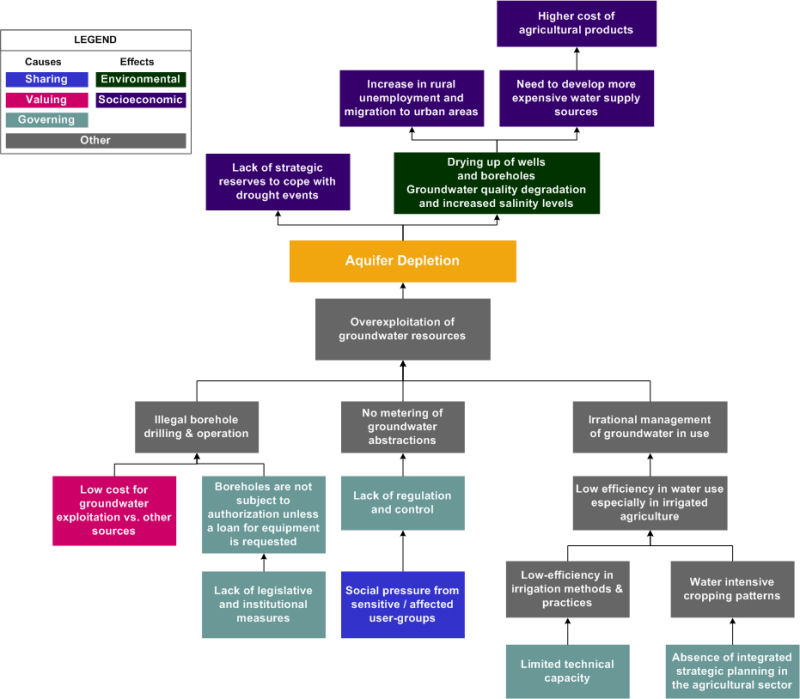Water scarcity in Tunisia is becoming more and more severe, as a result of population growth, rising living standards, and accelerated urbanization, which pose a threat on the sustainability of water abstractions and agricultural activities. The escalating urban water demand has led to an increased utilization of fresh water for domestic purposes and to the production of larger wastewater volumes. In spite of the considerable effort for mobilizing water resources, a strategy which has played a prominent and determinant role in the mitigation of socio-economic impacts of the last 15-year droughts, farmers continue to overexploit phreatic water tables at an average rate of 106%. This has resulted in the current focal problem of groundwater depletion and salinisation. A tentative illustration of the problem causes and effects is presented in the Figure below.

Groundwater depletion is the result of low recharge and overexploitation. The current overpumping patterns are attributed to the operation of illegal boreholes mostly drilled by farmers for irrigation purposes. Presently, there is an overall lack of regulation and control over the operation of private boreholes; the absence of a framework for abstraction metering is mostly due to social issues and political pressure from farmers. The problem is exacerbated by the lack of technical capacity in the agricultural sector, due to limited application of water saving methods in irrigation and the current water-intensive cropping patterns, which lead to wasteful water use.
Overexploitation of aquifers is expected to impact negatively the environment and upon agriculture in general, resulting in groundwater quality degradation (salinisation, sea intrusion in coastal aquifers), higher groundwater extraction costs, reduced agricultural production, desertification and abandonment of rural areas.
Alternatives and disincentives to groundwater overexploitation are at present inadequate; water reuse is barely practiced, due to the low quality of treated water, soil types and cropping patterns and most importantly due to the farmers unwillingness to accept and pay for treated water. Although experiments on aquifer recharge with treated wastewater have produced encouraging results, awareness campaigns and government subsidies targeted at promoting water reuse have thus far proven inadequate, and, with the exception of public irrigation schemes, they have not adequately addressed the concerns of end-users.